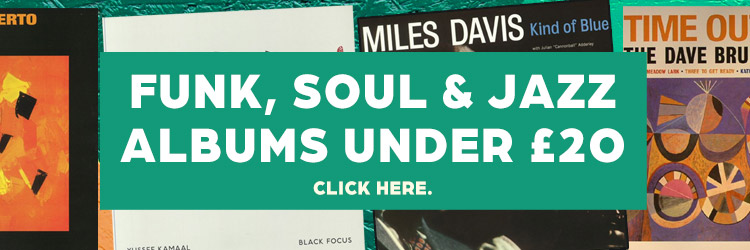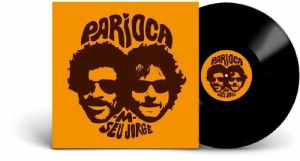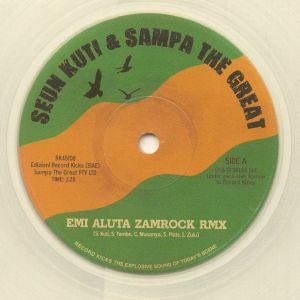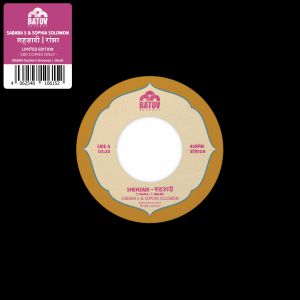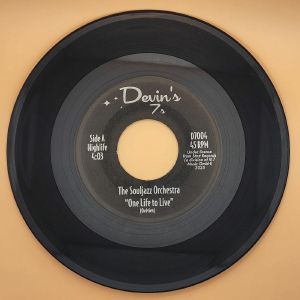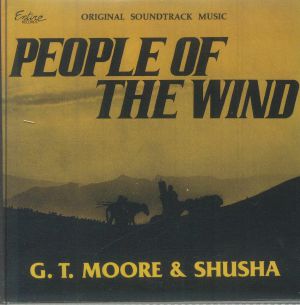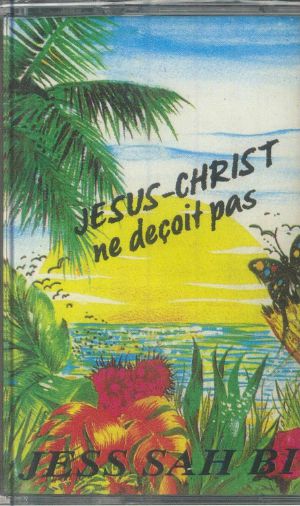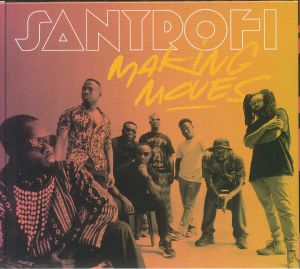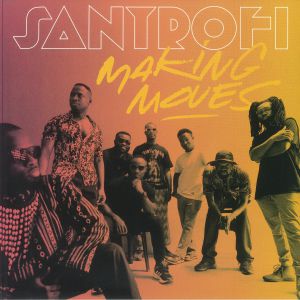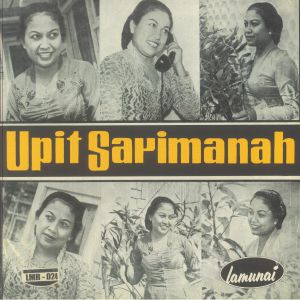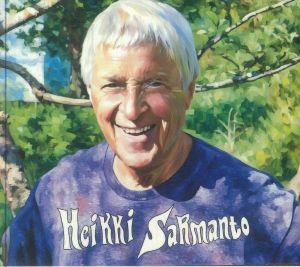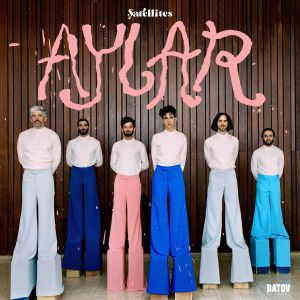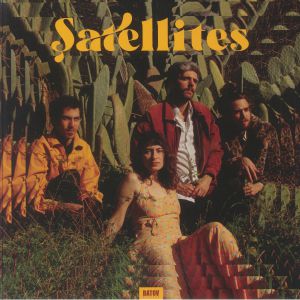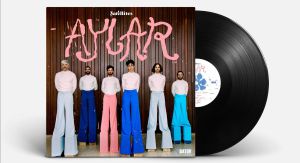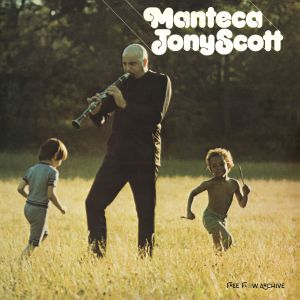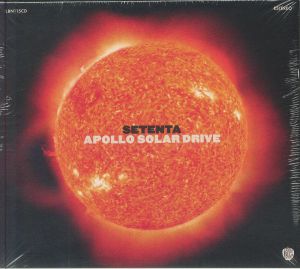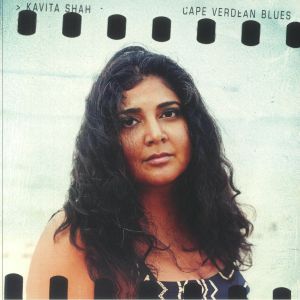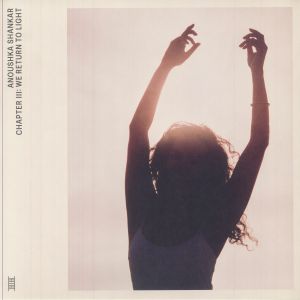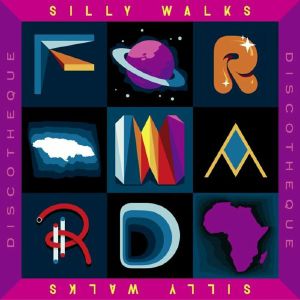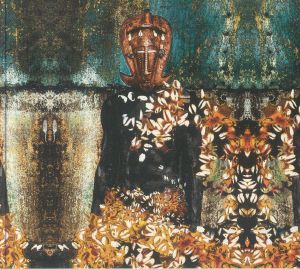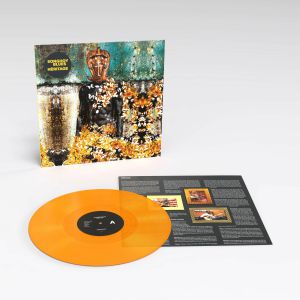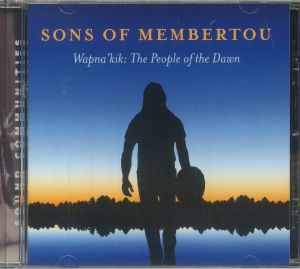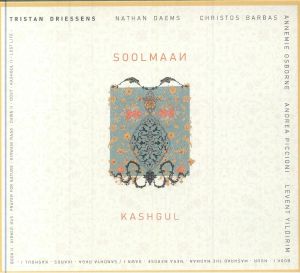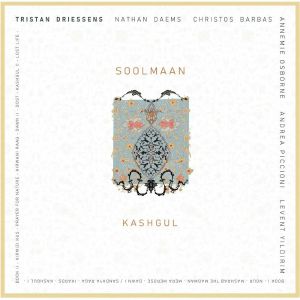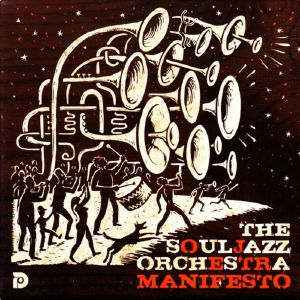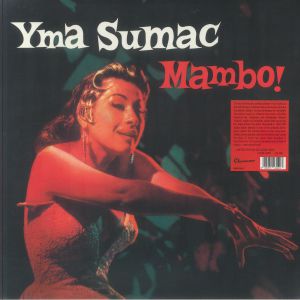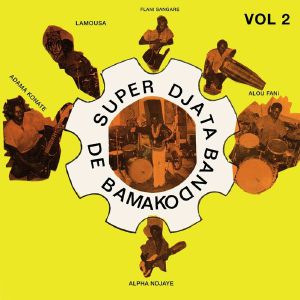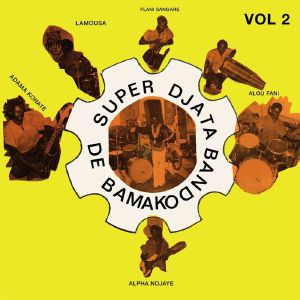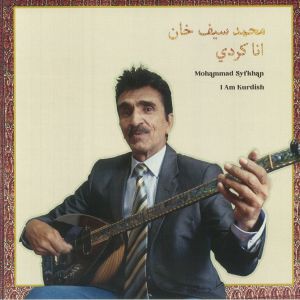Back catalogue:
Juno's full catalogue of
Singles
Review: Matthieu Chedid and Seu Jorge's long-running collaboration reaches a new peak with this latest release. A-side, the track 'Parioca' brings together the duo's signature stylesiChedid's French flair and Jorge's Brazilian rhythms, resulting in a seamless fusion of groove and melody that invites listeners into a warm, joyful world where their distinct musical identities meet. The B-side's dub mix of 'Parioca' takes things in a deeper direction, layering hypnotic rhythms and atmospheric textures that open up the track, creating an expansive, dubby atmosphere. It's a perfect companion to the original, showing the depth and versatility of their musical partnership, which continues to evolve after more than a decade of collaboration.
… Read moreGespielt von: Craig Charles Funk And Soul, Juno Recommends International
in stock $32.90
in stock $25.37
Cat: BRZ45 019R. Rel: 20 Dec 24
Review: Mr Bongo restock a brilliant 7" in their signature Brazil 45s series. The nineteenth to grace it, this blue-starred slice of small wax shone a light on Wilson das Neves' brilliant cover of Average White Band's 'Pick Up The Pieces' on the A, as well as a Mr Bongo fave on the B, Som Tres' potent samba-funk overflow 'Tanga'. The former flexes the historic muscles of a mythic Brazilian percussionist and vibesman, lending fidgety soft feels to AWB's already lull-lifting concoction; then 'Tanga' contrasts to this sense of measuredness with pure animal verve, as Tres' calls out to his bandmates commandingly amid whirlwinds of piano and drums.
… Read more in stock $12.39
Emi Aluta (limited clear vinyl 7")
Cat: RK 45108C1. Rel: 13 Feb 25
Review: Afrobeat virtuoso Seun Kuti is soon to release his highly anticipated album, Heavier Yet (Lays The Crownless Head) later this year. It features guest appearances from Damian Marley and Sampa The Great so promises to be a global sensation. Ahead of that, we get a taste of things to come from his distinctive Afrobeat sound with this powerful new work on Milan's Record Kicks. First up here with get the bubbly rhythms of 'Emi Aluta' (Zamrock remix) then 'Emi Aluta' (feat Sampa The Great - 45 edit) comes complete with some hard bars.
… Read moreGespielt von: Juno Recommends International
in stock $14.38
Gespielt von: Craig Charles Funk And Soul, ISOUL8 (Volcov)
in stock $12.39
Review: 'Shehzadi' (which means "Princess") is an Indo-disco gem featuring Solomon's Hindi vocals over Sababa 5's blend of hypnotic drums, nice pulsing bass, bright electric guitar and sparkling synths in a minor key. It channels '80s nostalgia with a modern twist and so rather evokes a Stranger Things meets Bollywood-type vibe. 'Ranjha' (which means 'Lover') shifts to a Middle Eastern feel with synths that echo traditional instruments like the saz. The upbeat groove complements Solomon's dynamic vocals and is filled with hope while dramatic pauses and an exuberant synth solo from Sophia add extra flair to make for a compelling mix of emotion and energy.
… Read more in stock $14.93
Cat: BRZ 45023R. Rel: 24 Jan 25
Review: This 7" delivers two rare treasures from the early 70s Latin underground, showcasing a blend of innovation and groove. Side-1 is an electrifying gem from 1971, driven by its creative vocal delivery and rhythmic Latin funk foundation. The track's raw energy and unique arrangement make it an irresistible dancefloor favorite. On Side-2, a 1973 classic merges Brazilian jazz with funk and soul, delivering a sophisticated yet infectious groove. Its lush instrumentation and smooth melodies create a heady, distinctive atmosphere, reflecting the musical experimentation of the era. Two tracks that encapsulate the spirit of a dynamic scene.
… Read more in stock $12.39
Review: Fourth Wave reissue one of the great works of Japanese composer, keyboardist and producer Hiroshi Sato. Forming part of a fresh flood of reissues that the label have explicitly mandated, Sato's are highlights among a discrete period of exquisitely recorded and visually designed LPs from the late 70s and early 80s. With a sleekly surreal cover artwork by Tadanori Yokoo - psych rock's pastiching answer to Vaughan Oliver - Sato brought chilled finger-flair to his various recorded synth patches, electric pianos, chamber brasses and guitars, all of which are recorded to produce a precise, razored sound in xpander-funk. Something latent - something much more - than mere smooth AOR is conveyed here. Perhaps it can be focalised in the LP's aura of effortless, disengaged mellowness, as if good comportment and style is an inevitability of life in cosmopolitan 80s Tokyo.
… Read more in stock $22.54
Dondon Bushi (7")
Cat: FWRF 004. Rel: 08 Apr 25
Review: Japan's Fourth Wave Record Factory sure does know how to serve up brilliantly beguiling sounds that ate you well out of your here and now. Next up is this, 'Dondon Bushi' 7" by Shoukichi Kina, Champloo and Tomoko Kina that explores a mix of Okinawan traditional sounds and modern grooves. The Mbira dance mix of the A-side jam is a bubbly rhythm with worldly percussion and soulful melodies that echo folk majesty and are topped with a wonderful weird vocal from Shoukichi Kina. On the flip, there is a more lazy and downtempo style dub rhythm, 'Tie Island' (No Man's Island mix) which is another worldly trip.
… Read moreGespielt von: Juno Recommends Downtempo
in stock $23.96
Cat: BRZ 45012R. Rel: 21 Jan 25
Review: The 12th release on Mr. Bongo's signature 45s series saw a reissue of two foundational releases in Brazil's modern popular music category; now the record hears a second round, fresh again off the master metal lacquer. On the A, we hear Brazilian samba luminary Elza Soares covering Jorge Ben's classic 'Mas Que Nada' - albeit with a hoarser vocal tone, such was Soares' signature voice, one which only led to a whopping 34-album career. B-sider Elizabeth, by contrast, upholds a mystery; the artist was nicknamed "Gatinha do Mato" ("jungle cat"), and recorded 'Vou Falar-Lhe Francamente' at some indeterminate point in 1960s Sao Paolo, when and where Brazilian local styles blended with funk and rock.
… Read moreGespielt von: Pete Haigh
in stock $12.39
in stock $21.14
Future Rootz Vol 2 (coloured vinyl 7" (comes in different coloured vinyl, we cannot guarantee which colour you will receive))
Cat: FRZ 008. Rel: 30 Apr 25
Review: Windy City collective Future Rootz are all about mixing up worldly electronic sounds, Latin, tropical bass and global jazz. This second volume in their new series does just that with two expressive remixes of iconic Afro-Colombian tracks. On Side A, Sound Culture delivers a modern take on Son Palenque's legendary 'A Pila el Arroz,' which was originally composed by Justo Valdez for Palenque Records. He infuses it with fresh and bubbly bass and hypnotic vocal chants. On side-B, Afroqbano reimagines 'Tropical Scenes' by adding a vibrant, rhythm-heavy twist to the original that sympathetically blends traditional Afro-Colombian sounds with electronic influences into a wiggling bit of irresistible and sunny global fusion.
… Read moreGespielt von: Voodoocuts
in stock $15.77
Review: Ottawa's Afro-jazz-funk collective returns with a limited 7" showcasing two dynamic tracks that highlight their genre-blending prowess. Originally released in 2014 on Inner Fire, 'One Life To Live' kicks off Side-1 with an exhilarating fusion of funk, Latin and Afro rhythms. The track's lively horn arrangements and tight percussion create an infectious groove, balancing intricate musicianship with danceable energy. On Side-2, 'Kingdome Come' dives deeper into jazz territory, merging Afro-Cuban jazz with jazz-funk and Latin jazz elements. The result is a richly textured piece that moves fluidly between laid-back grooves and vibrant, rhythmic bursts. The percussion is sharp, and the brass shines with both restraint and exuberance, highlighting the band's ability to navigate complex arrangements while maintaining a relaxed, natural flow.
… Read moreGespielt von: Mukatsuku Records Chart
in stock $18.89
Alben
Gespielt von: Juno Recommends Broken Beat Nu Jazz
in stock $28.46
Review: In 1976 Anthony Howarth produced a documentary film about the Badabi tribe in Southern Iran. Each spring, this indigenous group would make the difficult journey across the Zagros mountains and valleys to ensure their sheep had new pastures to graze. Led by Jafar Qoli, the movie chronicles this epic trek and various events along the way. Taking breathers only for weddings and mediation between contacts, and grappling with torrential rain and perilous terrain, among other challenges, it's an inspiring odyssey to say the least. The music fits the bill perfectly, bringing together the legendary Persian songwriter, editor and singer Shush? Guppy and revered English singer, composer and multi-instrumentalist Gerald Thomas Moore, transporting us to a time, place and people long-since committed to memory.
… Read more in stock $25.37
in stock $11.27
Jesus Christ Ne Decoit Pas (limited cassette)
Cat: ATFA 051CS. Rel: 17 Apr 25
Gespielt von: Juno Recommends International
in stock $14.65
Live At The Belly Up Tavern (translucent orange vinyl 2xLP)
Cat: LREG 500. Rel: 02 Jun 25
in stock $37.77
Review: In spring 2002, this collection of compositions by the renowned Alfonso Santisteban debuted on CD and soon became a staple on dance floors at exclusive clubs and events like that year's Fashion Week and the grand reopening of the iconic Cafe Oliver. It was also embraced by Berlin's lounge, easy listening and Brazilian-inspired groove scene so found plenty of homes on various compilations of the era. Tracks like the funk-fueled 'Persecucion,' the Brazilian-tinged 'Brincadeira' and the kitschy delight 'Strawberry Flavor' cemented its status as an artistic gem. This is the sort of diverse and tasteful record that will come in handy in myriad different settings and seasons.
… Read more in stock $34.39
Gespielt von: Juno Recommends International
in stock $14.93
Gespielt von: AfroBase (Radio Chart), Juno Recommends International
in stock $24.80
in stock $30.42
in stock $15.22
Review: Satellites' self-titled 2020 debut album won plenty of plaudits, with critics the world over hailing the Tel Aviv-based band's blend of vintage, Turkish style psychedelic folk-rock and dancefloor adjacent grooves indebted to funk, soul and disco. Aylar, the six-piece's belated sequel, continues in this vein, with the band arguably being bolder with their musical choices. For proof, check the cosmic strut of opener 'Tisaldi Mehmet Elmi', a psych-funk transformation of a traditional Turkish folk song, the low-slung grooves and sweet retro-organ melodies of 'Midnight Sweat', the gritty, thrusting and hallucinatory 'Yok Yok' and the future dancefloor anthem that is psychedelic Turkish disco gem 'Zuluf Dokolmus Yuze'.
… Read more in stock $14.93
Satellites (reissue) (limited yellow & red splattered vinyl LP + MP3 download code)
Cat: BTR 57SPL. Rel: 24 Apr 25
Gespielt von: Juno Recommends International
in stock $26.49
Review: Tel Aviv funk six piece Satellites are back in orbit, boldly moving the psychedelic folk-meets-groove sound they established on their eponymous debut forward on Lp number two. Drawing from the Turkish psychedelic wave of the 60s and 70s, their first record earned international acclaim, with support from BBC Radio 6 Music and FIP, as well as live sets on Gilles Peterson's Worldwide FM and KEXP. After two years of touring, the band entered the studio with a renewed sense of purpose and a tighter musical bond. The album opener, 'Tisladi Mehmet Emmi,' transforms a traditional Turkuler into a modern psychedelic funk masterpiece, blending saz, synths, basslines, and dramatic drumming, with Rotem's husky vocals narrating timeless themes of lament. 'Midnight Sweat' reveals a sultry side, with a late-night lullaby over a slinky disco-rock groove, while 'Hot Jazz' dives into cinematic territory, showcasing their jazz and funk chops. 'Gizli Ajan' and 'Yok Yok' surprise with genre-bending jams, while 'Ikmiz Bir Fideniz' becomes a cosmic folk-funk rendition. The album closes with a dynamic duo, from the cosmic disco-fuzz of 'Zuluf Dokulmus Yuze' to the dramatic finale of 'Zuluf B (Reprised).' Where their debut set the tone, this release marks their full transformation, confidently stepping out of the shadows of their Anatolian psych heroes to create a modern yet timeless record.
… Read more in stock $25.08
Review: This audiophile reissue brings Tony Scott's iconic album back to life, offering a vibrant and immersive listening experience. Originally released in 1973, the album captures Scott's mastery of jazz, showcasing his versatility and inventiveness on the clarinet, baritone and even through his distinctive scat vocals. From the exhilarating energy of the title track to the reflective beauty of 'Round Midnight' and the soulful balladry of 'Lover Man', 'Manteca' is a testament to Scott's enduring artistry. Backed by an all-star lineup, including bassist Sture Nordin, drummer Ed Thigpen and percussionist Sabu Martinez, the album seamlessly blends vibrant uptempo tracks with introspective ballads. This meticulously remastered reissue is a must-have for any jazz enthusiast, offering a chance to rediscover a true landmark in jazz history.
… Read more in stock $33.81
in stock $42.56
Review: French producer Patchworks delivers an exquisite fusion of Brazilian grooves here that come coloured with a wonder of influences such as raw disco funk and cosmic jazz. With plenty of magnetic vocals and elegant melodies, Patchworks' artistry shines as he crafts high-end arrangements that blend subtle but always rich harmonic flavours. The grooves are full-bodied and layered with intricate rhythms that pepper each track, while the overall vibe remains smooth. Patchworks' skilful approach brings a refined yet energetic sound that is likely to win over groove lovers and jazz cats alike.
… Read moreGespielt von: Craig Charles Funk And Soul, Charlie bucket/ dancing in space
in stock $26.77
Gespielt von: Juno Recommends International
in stock $16.34
Apollo Solar Drive (LP limited to 300 copies)
Cat: LBN 115LP. Rel: 15 Jan 25
Review: Paris band Setenta prepare for liftoff, anticipating the upcoming 20th anniversary as a band with a new, sixth album, themed and performed with solar flair. An odyssey of Latin funk and psychedelic boogaloo, the septet provide us ample opportunity to stargaze here, merging chanting songs and tripletting wonderments with kazooing, percussive, guitar-led asteroid belt explorations. A celebration of twenty years' worth of craft-honing, the metal percussive builds of 'Tambu' and 'Sa Ki Taw' certainly demonstrate this band's rather chill skill.
… Read more in stock $28.46
in stock $24.80
Chapter III: We Return To Light (LP limited to 200 copies)
Cat: LTR 048. Rel: 13 Mar 25
Review: In a limited edition closing statement, sitarist and musician Anoushka Shankar (daughter of Ravi Shankar) marks the culmination of an ambitious trilogy of mini-albums. This final chapter follows Chapter I: Forever, For Now (2023) and the Grammy-nominated Chapter II: How Dark It Is Before Dawn (2024). While the previous installments drew inspiration from Berlin and California, respectively, Chapter III is deeply influenced by Shankar's Indian heritage, reflecting a return to her roots; it hears collaborations with London multi-instrumentalist Sarathy Korwar as well as San Francisco-based sarod player Alam Khan, blending traditional Indian sounds with contemporary sound design and productive elements. Star cuts such as 'Hiraeth' intertwine the soulful resonances of sitar and sarod with dynamic percussion, titularly borrowing from the Welsh language term for a deep longing or homesickness. The record coincides with a global tour set afoot by the musician in March 2025, starting in North America and concluding in India later in the year.
… Read more in stock $33.81
Gespielt von: Juno Recommends Dancehall/Ragga
in stock $27.62
Cat: MAIS 031LP (B-STOCK). Rel: 01 Jan 90
B-STOCK: Sleeve damaged but otherwise in excellent condition
in stock $12.39
in stock $12.69
Heritage (limited translucent orange vinyl LP)
Cat: TRANS 797X. Rel: 16 Jan 25
Review: With their fourth album, the celebrated rock group from northern Mali, take a bold step forward, evolving their signature "desert blues" style into a more acoustic, introspective sound. Recorded in Bamako with producer Paul Chandler, the album blends the band's gritty, electrifying energy with traditional Malian influences, incorporating instruments and melodies from various ethnic traditions. The result is a vibrant, collaborative work that features contributions from renowned artists like Afel Bocoum, Rokia Kone and Neba Solo. Tracks like 'Issa', which translates to 'river', demonstrate the group's deeper exploration of acoustic textures and storytelling, drawing on the power of nature and migration. The song's early delta blues-inspired guitar riffs complement the band's passionate vocals. The band's ability to honour their cultural roots while embracing new musical horizons really shows well here. The album is both a celebration of their heritage and a bold look towards the future, marking another remarkable chapter in Songhoy Blues' already impressive catalogue.
… Read more in stock $27.04
Cat: SFW 40603. Rel: 20 Feb 25
in stock $13.81
in stock $17.76
in stock $33.81
Manifesto (reissue) (orange vinyl LP)
Cat: DR 057LPC. Rel: 22 May 25
Review: Originally released in 2008, Manifesto captured Canada's The Souljazz Orchestra in full stride i locked into deep Afrobeat, but stretching further into spiritual jazz, militant funk and raw soul. It's one of their most focused records, recorded live with no overdubs, and it still hits hard. Tracks like 'Parasite' and 'People, People' feel especially relevant now, tackling inequality, media spin and class struggle with sharp lyrics and a driving sense of purpose. There's fire in the horns, urgency in the rhythm, but also a feeling of hope and collective strength. The band has offered plenty of highlights since, but Manifesto remains a standout i lean, direct and full of intent.
… Read moreGespielt von: John Kong
in stock $22.54
in stock $29.03
Authentique Vol 2 ('psychedelic shadow' vinyl LP (indie exclusive))
Cat: NUM 824LPC2. Rel: 05 Jun 25
Review: This is the sound of Malian guitar mastery at its peak as Zani Diabate's Super Djata Band channelled raw magic on their 1981 album. Blending Wasulu hunter traditions, griot storytelling, Senufo dances and Fula and Mandingo sounds with psychedelic rock, blues and Afrobeat, the Bamako-based orchestra delivers a genre-bending sonic trip that more than stands up. This is where tradition meets wah-wah pedal wizardry across six electrifying tracks that blaze with intensity and infectious groove. It outlines a revolutionary sound forged for the people, by the people and in the 1980s, few bands matched their fire- could should still the same today, to be fair.
… Read more in stock $32.98
in stock $31.29
Review: This Kurdish/Syrian singer and bouzouki player began his music career in 1980 while studying nursing. After earning his degree in 1983, he moved to Raqqa, Syria, and formed The Al-Rabie Band, with whom he performed Kurdish, Arabic, Turkish and Western songs. In 2011, the Syrian war forced his family to flee after his son was killed by ISIS so he resettled in Ireland, where he used music to connect with the local community, performing at various events and collaborating with Irish artists. His album I Am Kurdish blends Middle Eastern and North African music and he says is a way of spreading joy, love and happiness.
… Read more in stock $22.27
in stock $26.77

 USD
USD




